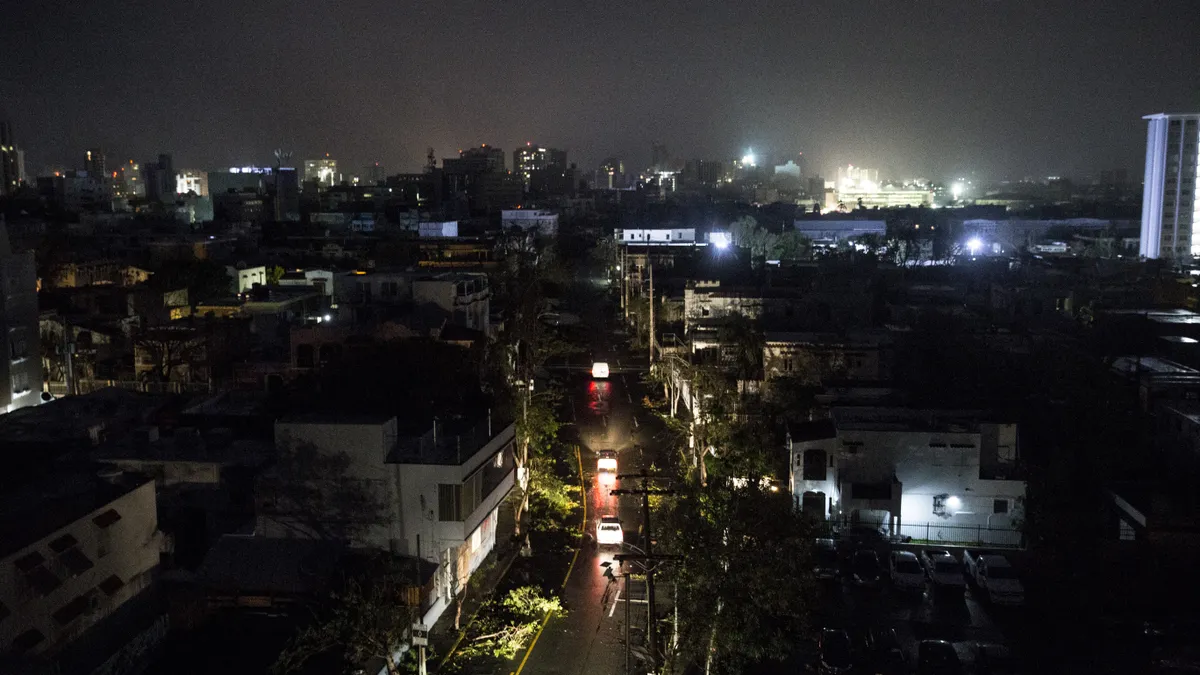Dive Brief:
- Creditors of Puerto Rico's ailing utility have offered a new $1 billion loan and will discount some of its existing debt, allowing the island to apply for matching federal aid funds to rebuild its devastated electric grid, Reuters reported.
- Puerto Rico is struggling on the precipice of a humanitarian crisis after Hurricane Maria hit the island about a week ago, leaving most of the island without power. The storm hit not long after a glancing blow from Hurricane Irma. Combined with Puerto Rico Electric Power Authority’s (PREPA) mounting debt crisis, the island is facing a herculean task of rebuilding its grid.
- The new loan would need approval from a judge, but The Fiscal Times reports that if approved, PREPA could lower its total debt from $8.1 billion to roughly $7.95 billion. However, some observers speculate that offering new debt to the endebted island is not as altruistic as it may sound.
Dive Insight:
Puerto Rico is in desperate need of aid, and the island's distance from the United States mainland has hampered efforts to deliver assistance even a week after Maria made landfall with winds of 155 mph. The storm knocked out power to nearly all of the 3.5 million residents of the U.S. territory.
But Bloomberg is questioning whether the proposed loan is in fact a good idea, and reports some are speculating the island will reject the deal.
The proposal comes from a group of funds that hold $3 billion in PREPA bonds. In exchange for the $1 billion loan, which would come with no interest repayment for up two years, the funds would also exchange $1 billion in existing debt for $850 million and a higher standing in the case to recover funds. It is not the first time the arrangement has been offered.
“They keep bringing it back from the dead and hope that they’ll hold on to a 15 percent haircut,” Matt Dalton, CEO of Belle Haven Investments, told Bloomberg. “It’s a time for money to be offered, but not with contingencies surrounded around it.”
Out of 51 creditors contacted by The Intercept, only a handful — Citibank, Goldman Sachs and Scotiabank — were offering assistance to the island that did not come with strings attached.
In other news, President Donald Trump this morning waived the Jones Act, which limits shipping between United States ports to ships with American crews. Critics said the law had held back critical supplies from reaching the island.
Fuel shortages have hobbled the island. Diesel for some critical care facilities is being delivered by armed guards to avoid the potential for looting, generators are low on fuel, and at the island's gas stations, wait times can stretch hours.















